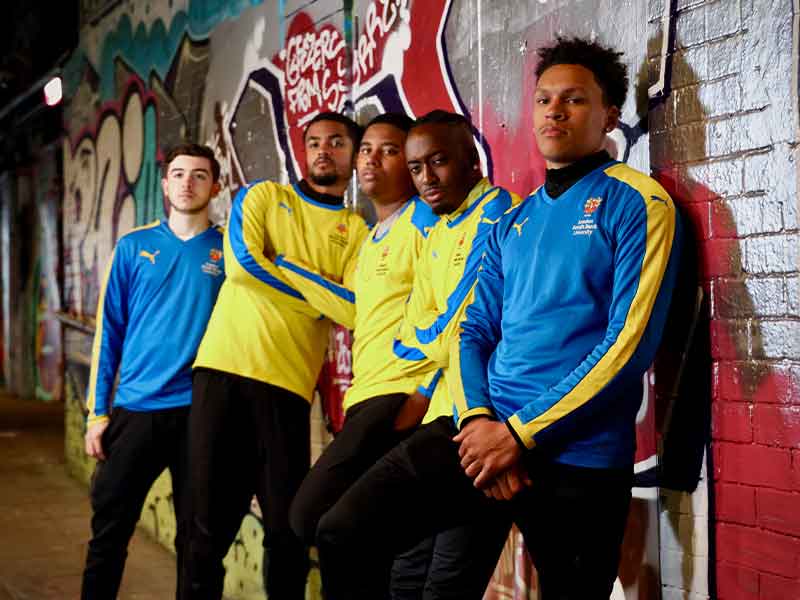Academic appeals
What is an academic appeal?
An academic appeal is a way for you to request a review of an academic decision made by the University, usually through its Examination Board, in limited circumstances explained in this procedure.
Extenuating circumstances
What are extenuating circumstances?
Extenuating circumstances are circumstances outside your control that may have a negative impact on an assessment.
- Extenuating circumstances may include but are not limited to:
- Serious personal illness
- A change in an existing health condition at the time of the assessment
- Death or serious illness of a family member or other person with whom you had a close relationship
- Missing part or all of an examination as a result of serious and unforeseeable disruption to public transport.
You may not claim extenuating circumstances on the grounds you:
- Consider marks given to be too low
- Did not understand or were unaware of the course regulations
- Misread or missed the published examination timetable
- Had problems with private transport, such as congestion or breakdown
- Lost work because of a technical or other failures (e.g. computer failure)
- Failed to meet the requirements of the UK Visa and Immigration regulations
- Did not check your University email account regularly for new messages
Making a complaint
What is a complaint?
A complaint is an expression of dissatisfaction by one or more.tudents about the University’s action, inaction or standards of service which have been provided by or on behalf of the University, on or off the campus, which the student(s) have not been able to resolve through informal processes.
Disciplinaries
What is a disciplinary?
The University uses the disciplinary procedure to address the unacceptable conduct of any enrolled student. The University believes all students and staff have the right to work, study and learn in a safe environment, so any unacceptable conduct which jeopardises this will be investigated and dealt with.;
Academic misconduct
What is academic misconduct?
Academic misconduct refers to an attempt to cheat in an assessment. This can take a number of different forms, including plagiarism, infringement of rules for examination candidates, contract cheating which occurs when a student arranges for another individual to do their academic work, or attempting to assist another student to gain improper advantage (for example uploading essays to ‘essay banks’). This list is not exhaustive. Academic misconduct will result in a reduction of marks for the work concerned or a more.evere penalty.
Fitness to practice
What is fitness to practice?
The fitness to practise of a student may be called into question if their behaviour, competence or health status causes concern in relation to their suitability to become a registered professional or work in an area of related health or social care practice.
This Fitness to Practise procedure covers all students in the School of Health and Social Care who are undertaking a programme of study which involves patient or service user contact, and/or allows for registration to practise as a professional.
Interrupting and Withdrawing
What does interrupting your studies mean?
To interrupt your studies means you are intending to ‘interrupt’ your studies for a period of time and resume your studies with the university at a future date. Students usually interrupt at the beginning of their semester and return the following academic year.
In exceptional circumstances, the University may take steps to interrupt your studies on your behalf. This commonly happens in situations where you haven’t been attending classes or engaging with your course for a period of time, or if there are serious concerns about your physical or mental health.
What does withdrawing from your studies mean?
This is when you have decided that you no longer want to study at LSBU and you have no intention of returning. As with interruption, in some circumstances, the University will make the decision to withdraw you from your course if you have stopped engaging with it. They make this determination by reviewing your attendance records, use of University systems (such as Moodle) and submission of work over a period of 2 weeks. If they are concerned, they will write to you and invite you to comment on the situation before making a final decision.
The Office of the Independent Adjudicator (OIA)
What is the OIA?
The Office of the Independent Adjudicator (OIA) is an independent body that reviews individual complaints by students against higher education providers. They have no regulatory powers over the educational institutions and can therefore not punish or fine them. However, Universities are expected to comply with the decisions and recommendations of the OIA as failing to do so is considered bad practice.
Students are able to submit a review of a university decision to the OIA, once they have received a completion of procedures letter. This is also known as ‘COP’ letter.
Halls of Residence Disciplinaries
What is a halls of residence disciplinary?
When you take up a room in a Hall of Residence, you sign and accept that you will abide by the Accommodation Agreement. If you are suspected of breaching the agreement, you might be subject to a disciplinary investigation. This is known as the Halls Disciplinary Procedure.
 Your Opportunities
Your Opportunities Your Voice
Your Voice Your Support
Your Support Your Events
Your Events